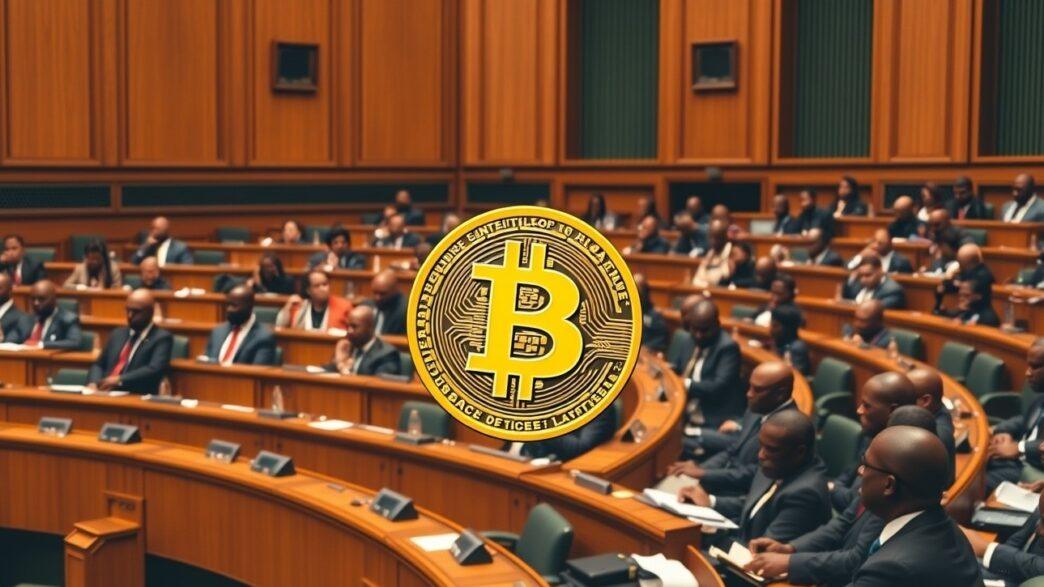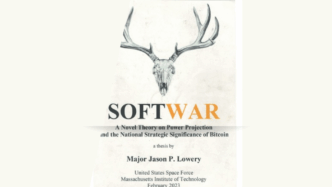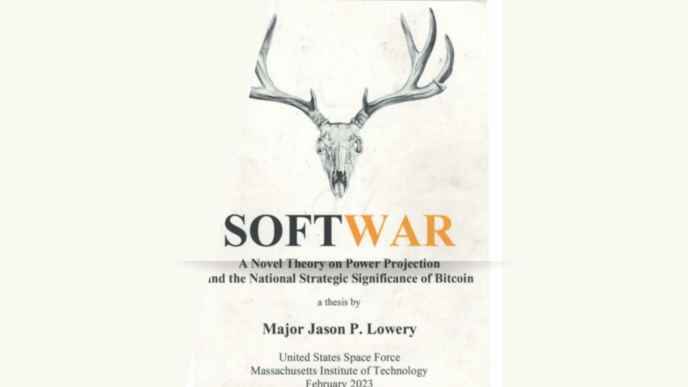If you’re not at the table, you’re on the menu. The state does not relinquish control, it observes, adapts, and eventually classifies.
Since the advent of bitcoin and other emerging peer-to-peer decentralized technologies, one question has often resonated: Are regulations necessary, and if so, to what extent?
These technologies are designed to grant freedom and autonomy to individual monetary rights, but is that even possible? Can any invention of such scale truly operate under the radar of regulatory authorities?
This piece argues that while bitcoin and its underlying architecture promise radical financial sovereignty, the realities of governance and state oversight cannot be ignored.
By examining regulatory patterns in countries like Nigeria, Ethiopia, and Kenya, it illustrates how governments are struggling to grasp and respond to this decentralized revolution, often with contradictory or inadequate measures. The tension between freedom and oversight is playing out in real time.
Even where regulation cannot fully limit the use of bitcoin such as in sending and receiving transactions, what about mining? Can it go unregulated?
Take China as a case study. It tried to ban itself entirely from the Bitcoin network. Since 2013, China has banned financial institutions from digital currencies. In 2017, ICOs and exchanges were outlawed, and by 2021, all digital currency-related activities, including mining, were declared illegal. Yet, it’s hard to argue no bitcoin activity occurs there today. Can regulations truly track decentralized exchange activity? Likely not.
As bitcoin adoption grows in Africa including mining in Ethiopia, now contributing roughly 2.5% of global hashrate, a pattern appears. First, ban financial institutions from interacting with digital currencies. Then reverse it. Next, introduce tax-related bills. Finally, create frameworks or stretch existing laws to cover digital assets.
Is that enough? Bitcoin products are rising. Merchants are onboarding. Daily use is increasing. But regulations lag. Worse, a single misaligned statute could ruin progress.
In Nigeria, the SEC recently classified Bitcoin as a security under the new Investment and Securities Act (ISA). It is a step in the right direction in terms of regulatory engagement, though the classification itself has alarmed the community. Bitcoin fails the Howey Test and lacks a central issuer, and many Bitcoiners argue it should be treated as a monetary asset.
As far as I can tell, not much is being done to fix this. Most of the focus seems to be on building with the tech, which is great but it’s leaving a critical gap. The Nigerian Bitcoin community still feels fragmented. There’s no clear sense of collective identity or shared mission. And if we’re serious about adoption, that kind of unity isn’t optional, it’s foundational.
A case pseudonymously titled Bitcoin v. Nigeria, filed at the Federal High Court by leading Bitcoiner and political activist James Otudor, is now underway. The activist, who has faced cyberattacks and state repression, is suing the government over harassment by tax and police authorities, seeking legal recognition and protection for Bitcoin users. I support this effort wholeheartedly. I authored the whitepaper behind the case and provided strategic counsel, firmly advocating dialogue as the best path forward. This isn’t just a lawsuit; it’s a landmark moment calling for unity and a smarter approach to policy engagement.
Last year, Nigeria banned P2P activities using USDT, blaming it for the naira’s depreciation—a scapegoat for poor monetary policy. Even today, “bitcoin” remains restricted on Nigeria’s CAC portal.
Businesses cannot register with “bitcoin” in their name. They operate under aliases. While this is in fact legal and permissible, it raises important questions. Despite Nigeria being a global peer-to-peer leader (according to Chainalysis), many stakeholders still operate in disguise.
At the Bitcoin Innovation Summit hosted by Bitcoin Dada, panelists from Btrust Builders, iPayBTC, Bitnob, and Mavapay discussed regulation. One spoke of moving as a herd. Another described regulators as flying arrows and advised setting up offshore. A third called regulators “big guns” hampering fluidity. One quoted his boss: “You keep building until regulation meets you.”
I found these views disturbing. They signal a half-in, half-out approach. No long-term conviction to stay in Nigeria. And again, no consensus on lobbying. Why? Because the so-called community won’t even recognize itself as one.
Another group, behind the ‘Naija Bitcoin Conference’, claimed the SEC chairman is bitcoin-friendly. I argued then, and maintain now that if friendliness exists and the community has lasted over five years, why is there no real progress?
Not much is happening on the regulatory front. Since Nigeria’s new supposedly ‘crypto-friendly’ administration took office, nearly all bills that have reached second reading have focused on taxation — a clear pattern. In a regulatory environment like this, waiting for regulation to find you can be costly, as past regulatory actions and directives on the industry have shown. It’s more strategic to initiate the conversation through thought leadership and engagement. Then comes lobbying. That’s how it works in more advanced jurisdictions. Waiting passively is a mistake because regulators will continue to define and treat the asset on their own terms.
Consider the U.S. Bitcoin community. In the lead-up to the election, President Trump — along with several U.S. legislators — was invited as a guest speaker at Bitcoin 2024. The community has remained steadfast in its push for industry-specific legislation, combining direct engagement, open dialogue, and strategic lobbying. The result? President Trump proposed a national strategic Bitcoin reserve and executive policy action.
Section 1 of that order recognizes bitcoin uniquely, defining its strategic and monetary role. Bitcoin now holds a special status in the present-day U.S. administration—an asset class distinct from the wider crypto category. That is how you scale.
Today, sitting U.S. legislators are actively advancing pro-Bitcoin bills, while several states are in the later stages of the policy lifecycle — either approving or rejecting legislation aimed at establishing Bitcoin treasuries, strategic reserves, or related regulatory frameworks.
Across Africa, nations are taking different regulatory paths;
Ethiopia: A Mining Powerhouse Amid Regulatory Ambiguity
Ethiopia is leveraging hydroelectric resources to become a major mining player. In 2024, Ethiopian Electric Power earned $55 million from bitcoin miners, projected to hit $123 million next year. Yet, the country lacks a legal framework for digital currencies. This disconnect hampers bitcoin-to-fiat channels and limits operational support.
Kenya: Progressing Toward Comprehensive Regulation
Kenya is drafting the Virtual Asset Service Providers (VASP) Bill 2025 to license and regulate digital currency providers with anti-money laundering provisions. The Capital Markets (Amendment) Bill 2023 would classify digital currencies as securities under the Capital Markets Authority. These actions show a serious push for innovation and oversight.
South Africa: Establishing a Regulated Ecosystem
South Africa has issued licenses to 59 digital currency businesses via the Financial Sector Conduct Authority (FSCA). The tax authority mandates that digital asset gains be declared as part of income. South Africa is leading in creating a secure, regulated market.
In summary, Ethiopia’s mining boom shows potential, but regulation is lacking. Kenya and South Africa are taking proactive steps to balance innovation and consumer protection.
Call to Action
Power concedes nothing without a demand. It never did and it never will.
This is the time to organize, not tomorrow, not when things fall apart, but now. In the absence of collective vision, one law could bring everything down like a house of cards.
As we work toward making ourselves front-runners in the technology, we must be willing to put in the work at every layer from code to community to policy to ensure our place at the forefront. It’s crucial that we shape our own Bitcoin story, one that’s unique to Africa, and not let the efforts and experiences of others define our journey. If we don’t take charge, we risk playing catch-up, losing the chance to lead and create our own narrative
The future of bitcoin in Africa will not be written by accident. It will be written by those who show up together, informed, and relentless.















